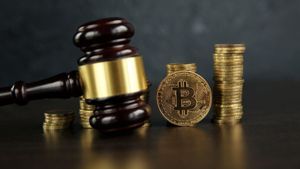The Abbé Pierre sexual abuse allegations have reached a decisive yet painful conclusion. On February 4, 2025, the Paris prosecutor's office announced its decision not to proceed with any criminal investigation against the late priest concerning numerous sexual assault allegations. The decision stemmed from the expiration of the statute of limitations, rendering any potential legal action moot.
Since the summer of 2024, the accusations against Abbé Pierre, who passed away in 2007, have grown starkly graphic. Reports indicate at least 33 corroborated instances of abuse, including severe charges like rape of minors and incest, spanning from the 1950s to the 2000s. These grave allegations were detailed across three separate reports, compiled by the Egaé firm and mandated by Emmaüs International and the foundation bearing Abbé Pierre's name.
The decision from the prosecutor's office clarified, “The public action is extinguished by the death of the person concerned [in 2007] as far as his personal involvement is concerned, and prescribed concerning any potential failure to report facts.” These findings have left many victims distraught and without the recourse they sought for justice.
Throughout this tumultuous period, Abbé Pierre, whose real name was Henri Grouès, has been viewed as both a humanitarian icon and, now, the alleged perpetrator of heinous crimes. The Catholic Church expressed its regret over the prosecutor's decision, acknowledging its recognition of the victims’ plight. The President of the Conference of Bishops of France remarked their determination to seek the truth behind the acts committed by Abbé Pierre.
Victims have expressed their anguish over the outcome. One alleged victim, Rachel, who claims she was abused at the age of eight, stated, “I feel soiled once again,” encapsulating the sentiments felt by many who have come forward to share their experiences. The revelations have brought about significant public discourse surrounding the adequacy of the legal system when it handles historical abuse cases.
The survivors still have legal avenues available to pursue civil actions against Abbé Pierre’s estate or related organizations, as legal experts like Benjamin Moron-Puech explain. They may present arguments for negligence due to the failure to disclose abuses, or invoke the liability associated with third parties under whom Abbé Pierre operated.
The Abbé Pierre Foundation has undergone significant transformations due to these allegations, changing its name on January 25, 2025, to the “Foundation for the Housing of the Disadvantaged.” At the same time, the site dedicated to Abbé Pierre's memory has been closed since September 2024, highlighting the institution's desire to distance itself from the troubling past.
This shift is not just symbolic but strategic, aimed at reconceptualizing the influential figure’s legacy. Tarek Daher, General Delegate of Emmaüs France, reinforces this sentiment, stating, “For seventy years, we've claimed to be the heirs of Abbé Pierre. It's time to accept our legacy with responsibility.”
Such claims raise questions about institutional knowledge and the habitual silence surrounding abuse cases within religious contexts. The priest’s allegations have not only incited outrage among victims and their supporters but have sparked broader discussions about the systemic problems inherent within judicial frameworks when addressing past assaults.
The non-denunciation of facts, often cited, appears to provide another layer of complication. Prosecutors indicated they may pursue investigations if evidence arises indicating there were other minor victims involved. Unfortunately, this won’t address the actions of the past victims are so desperate to confront.
With legal limitations preventing accountability, the French government is now revisiting legislative measures. Minister Aurore Bergé emphasized the urgency of reforming the current laws surrounding the statute of limitations for sexual assault cases, promoting civil non-prescription for such crimes against minors to empower victims.
Many victims stand together to recover their power and speak out against silencing, advocating for justice and redress. Each voice continues to highlight the urgent need for reform, challenging society to confront uncomfortable truths rather than ignore them.
Abbè Pierre's case serves as more than just one individual's darkest chapters—it resurrects the larger conversation surrounding victim's rights, church accountability, and the imperative for legal frameworks to evolve. The legacy of Abbé Pierre, once heralded as the defender of the underprivileged, now hangs precariously between the realms of charity and accountability.
Moving forward, as communities grapple with revelations of past abuses, the focus remains on ensuring pathways for justice, creating structures where victimhood does not equate to silence. Only then may true healing begin, not just for the individuals affected but for the institutions meant to safeguard them.



